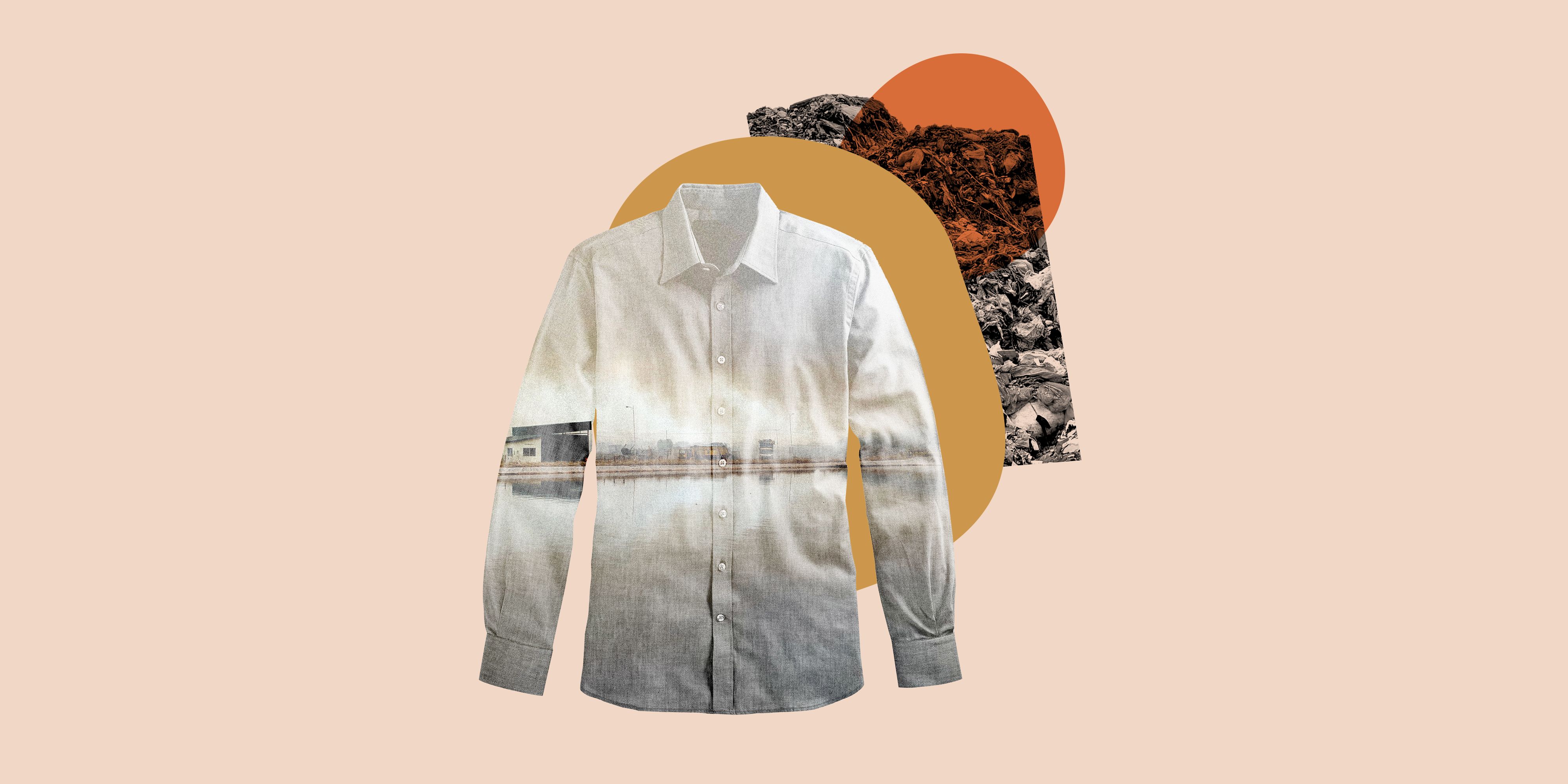Cape Town Sustainable Fashion: Honest Clothing for a Much Better World
Cape Town Sustainable Fashion: Honest Clothing for a Much Better World
Blog Article
Keep Ahead of the Contour by Exploring Innovative Style Fads
In a sector as vibrant as style, remaining in advance includes greater than just following existing fads-- it requires an expedition of development. Smart textiles, for instance, are changing garments right into useful work of arts, while 3D printing is changing layout procedures with its adjustable, waste-reducing abilities. As sustainability ends up being a foundation, advancements like eco-friendly materials and circular style techniques are improving ecological obligation - Cape Town Sustainable Fashion. In addition, the merging of modern technology and style proclaims a brand-new period of customer engagement. How, then, can these emerging trends redefine the future of fashion, and what implications do they hold for brand names looking for to grow in this developing landscape?

Embracing Smart Textiles
Recently, the style market has experienced a transformative change with the assimilation of clever fabrics, an advanced technology that mixes technology with fabric. This development stands for not just a fusion of aesthetics and performance yet additionally a considerable jump in the direction of sustainability and personalization in fashion. Smart textiles, additionally called e-textiles, embed advanced electronics such as sensors and conductive threads within the textile, allowing garments to engage with the user or the atmosphere.
These textiles are developed to keep an eye on physiological specifications, such as heart rate or body temperature, providing real-time health analytics. Past wellness applications, wise textiles are also being utilized for adaptive apparel, which can change shade or pattern in response to ecological stimulations, thus offering a dynamic style experience.
In addition, the growth of energy-harvesting fabrics that create power from activity or sunshine is leading the way for self-dependent wearable modern technology. This innovation is appealing to ecologically conscious consumers and designers intending to minimize the environmental footprint of fashion. As research and growth in this field advancement, smart fabrics are anticipated to come to be progressively prevalent, improving the landscape of contemporary fashion with their multifunctional capabilities.
The Surge of 3D Printing
Changing the production landscape, 3D printing has emerged as a game-changer in the garment industry. This innovative innovation has allowed designers to push the limits of creativity, generating complex and personalized garments that were previously inconceivable. By leveraging electronic design and additive production, 3D printing facilitates the production of complex geometries and patterns, enabling designers to trying out brand-new structures and structures.
A noteworthy advantage of 3D printing in fashion is its ability to produce on-demand, decreasing waste and minimizing inventory demands. This efficiency not just maximizes manufacturing procedures however additionally allows for fast prototyping, allowing developers to bring their visions to life in a shorter timeframe. In addition, 3D printing supports customization to a degree unequaled by traditional methods, providing distinct styles and individualized fits tailored to individual consumer preferences.
The increase of 3D printing has also democratized style, making it obtainable to emerging developers who can now produce top quality items without considerable monetary investment in typical production framework. As modern technology continues to advancement, the fashion business is poised to harness the full potential of 3D printing, discovering brand-new products and methods that will most certainly redefine how fashion is conceived and produced.
Sustainable Fashion Advancements
As the apparel industry grapples with journalism need for ecological duty, sustainable fashion developments have emerged at the forefront of transformative change. The growing awareness of environmental effect has fueled a change in the direction of even more eco-conscious methods and materials. Developers and brand names are currently focusing on sustainability, integrating methods that decrease waste and minimize carbon footprints.
One substantial advancement is the rise of round fashion, which emphasizes recycling and upcycling to prolong the lifecycle of garments. This method not only minimizes waste however likewise encourages customers to embrace a more conscious technique to clothes intake.
One more breakthrough hinges on the fostering of innovative dyeing techniques that use all-natural dyes or waterless processes, therefore decreasing the huge quantities of water and chemicals typically utilized in fabric dyeing. In addition, advancements in biotechnology have caused the production of lab-grown leather and fabrics, providing cruelty-free and eco pleasant alternatives to traditional materials. With these introducing initiatives, the apparel industry is making purposeful strides towards a much more lasting future.

Tech-Integrated Clothing
Tech-integrated clothing represents a cutting-edge blend of fashion and technology, improving exactly how individuals interact with their apparel. This ingenious domain is noted by the addition of smart fabrics and ingrained digital components, boosting both performance and visual charm. From physical fitness trackers embedded in sports apparel to heated jackets regulated by means of smartphone applications, tech-integrated clothing provides customers unmatched comfort and versatility.
Introducing brands are driving this pattern, concentrating on creating garments that reply to ecological stimuli or user commands. For example, some garments can alter shade or pattern in feedback to temperature level changes, while others include biometric sensing units to keep track of health metrics like heart rate or anxiety levels. The smooth combination of modern technology right into fabrics likewise includes ecological sustainability, with initiatives to develop self-cleaning fabrics or Bonuses garments that readjust to weather problems, hence minimizing the need for multiple layers.
In addition, the arrival of wearable innovation is not just limited to apparel yet prolongs to accessories like watches and eyeglasses, further widening the range of tech-integrated fashion. As the sector proceeds to introduce, the potential for customization and personalization in garments expands, providing consumers unique, tech-enhanced style experiences that accommodate their private requirements and preferences.
Future of Virtual Style
In the last few years, the future of digital style has emerged as a transformative force within the industry, leveraging innovations in electronic technology to redefine just how style is developed, experienced, and eaten. By incorporating increased fact (AR), online fact (VR), and 3D layout tools, designers can currently craft immersive and interactive experiences that go beyond conventional style boundaries. Online style enables for the production of garments that exist entirely in electronic environments, using endless opportunities for innovation without the restrictions of physical production.
This digital change not only provides opportunities for innovative expression but likewise addresses sustainability concerns inherent in standard fashion techniques. Cape Town Sustainable Fashion. By getting rid of the need for physical resources, online fashion decreases waste and reduces carbon impacts. In addition, the rise of digital fashion lines up with the enhancing customer demand for one-of-a-kind and customized experiences, as digital garments can be tailored and customized to specific choices with convenience

Conclusion
The style industry's future lies in the assimilation of sustainable methods and cutting-edge modern technologies. Virtual fashion is poised to redefine consumer communications.
In current years, the style industry has experienced a transformative change with the integration of clever fabrics, an advanced advancement that mixes modern technology with textile.As the style sector grapples with the pushing need for environmental responsibility, sustainable fashion developments have emerged at the leading visit this website edge of transformative modification.In current years, the future of online style has actually arised as a transformative pressure within the market, leveraging improvements in electronic modern technology to redefine how fashion is produced, experienced, and eaten. The surge of online style straightens with the increasing consumer demand for tailored and one-of-a-kind experiences, as digital garments can be tailored and customized to specific choices with simplicity.
The style market's future lies in the integration of innovative technologies he has a good point and sustainable practices.
Report this page